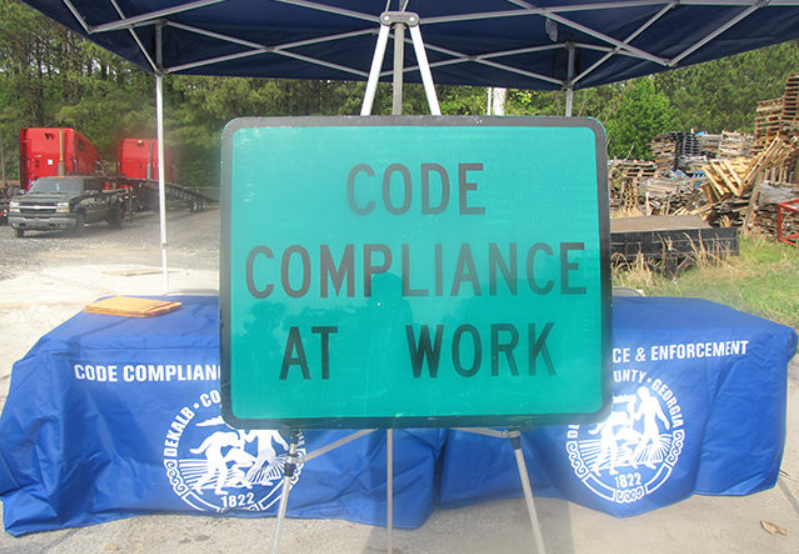
By Christine Fonville
DeKalb CEO Michael Thurmond recently held a virtual meeting with county commissioners to discuss the impact the COVID-19 pandemic has had on code enforcement throughout the county – and to clear up confusion around the role of the Code Compliance Administration.
“We want to be clear about code compliance and help our governing authority and citizens better understand this process,” said Thurmond. “DeKalb County does not have a code enforcement department, but rather a Code Compliance Administration (CCA). The CCA has no unilateral enforcement authority, which surprised me when I learned this.”
According to officials, the CCA’s primary responsibility is to ensure compliance with regulations protecting the health, safety, and welfare of residents. The CCA receives citizens’ complaints, assess properties for compliance and issues citations and warnings. Negotiating for voluntary compliance is where the CCA’s power ends, said officials. The CCA must rely on an appropriate court to make the final decision for infractions that are not corrected.
The COVID-19 pandemic has stalled or put a halt altogether on those code violations that go to court, stated officials.
In March 2020, the Supreme Court of Georgia issued an emergency order suspending in-person hearings for most court-related matters, including code compliance cases. In August 2020, code compliance cases resumed via Zoom and were held once a week, stated officials.
If a defendant pleads “not guilty,” that case must wait for in-person trials to resume unless all parties agree otherwise, stated officials. In-person court cases for code compliance offenses have not yet resumed.
Despite the delays and setbacks, Thurmond said the county plans to move forward with fighting further litter and blight through anti-litter campaign initiatives and reinvesting in the “Keep DeKalb Beautiful” initiative. Keep DeKalb Beautiful (KDB) is described on the county’s website as “an active community and environmental steward, tasked with protecting, enhancing, and maintaining the county’s streets, rights of way, roadways, intersections and county-owned properties. Through continuous beautification initiatives, roadside enhancement activities, public education and resident engagement and empowerment, KDB works collaboratively with community groups, civic associations, individuals, and county departments to advance the county’s strategic priority aimed at developing and maintaining viable, sustainable neighborhoods and aesthetically pleasing communities.”
“We’re not perfect and we never will be, but I can tell you this: if you ride around DeKalb County today, [you will find] this county is cleaner than it has been in more than two or three decades,” said Thurmond.
Read the original story on TheChampionNewspaper.com.











